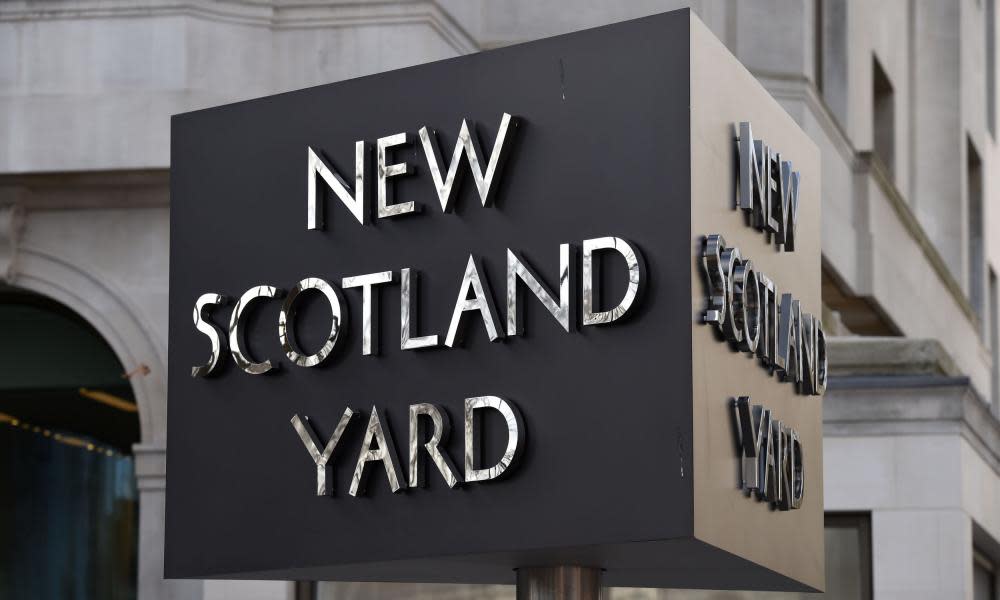Undercover officer punched activist over spy claim, inquiry told

An undercover officer punched an activist who had accused him of being a police spy, a public inquiry has been told.
The officer, who used the fake name Michael Scott, broke his little finger as a result of hitting the activist after the accusation had been made at a political meeting.
The inquiry also heard that a second undercover officer allegedly made a violent threat against a woman who had identified him as a spy.
The inquiry, which is led by the former judge Sir John Mitting, is looking at the activities of 139 undercover officers who have spied on more than 1,000 political groups since 1968. In its current phase it is examining undercover operations in the 1970s and early 80s.
On Friday, the inquiry heard a brief reference to the Beatles’ John Lennon.
One of the officers under scrutiny at the inquiry is Scott, who between 1971 and 1976 monitored leftwing groups including the Troops Out Movement (TOM), a group that campaigned for the British military to leave Ireland.
David Barr, the inquiry’s QC, said that during a TOM meeting a leading member of the group, Gery Lawless, accused Scott of being a spy. “Later that evening [Scott] saw Lawless in a phone box. He confronted him over this accusation and punched him in the face. He broke his little finger as a result,” Barr said.
Related: Undercover police spied on more than 1,000 political groups in UK
According to Barr, Scott told his managers about the incident and they discussed how he should deflect the suspicions of Lawless, who has since died. Scott, who is due to give evidence to the inquiry, has said TOM did not use violence to achieve its objectives.
This week, the inquiry has also heard about another undercover officer, Dave Robertson, who spied on leftwing groups between 1970 and 1973.
Diane Langford, a member of one of the groups, said Robertson threatened violence against the family of one of her friends who had alleged he was a police officer. Robertson, who denies the claim, said he knew the woman, known as Ethel, from his time as a uniformed officer.
He said that at a meeting at the London School of Economics, Ethel “announced his status as a police officer in a loud voice, although not many people heard.” He said the incident brought about the end of his deployment.
Another undercover officer, Rick Gibson, referred to Lennon in one of his reports, according to James Scobie, a QC for some of those who were spied on.
Gibson, while infiltrating TOM in the 1970s, organised a national rally for the group and unsuccessfully attempted to persuade Lennon and the actor Peter O’Toole to appear at it. Scobie said special branch, the police unit that monitored political groups, had a file on Lennon.
It has previously been revealed that the Security Service, MI5, and the American FBI kept files on Lennon as they alleged that he supported the IRA. The former MI5 officer David Shayler, who worked for the agency in the 1990s, said a file was kept on the singer because it was alleged he was funding a socialist group, the Workers Revolutionary party.
The inquiry continues next week.

 Yahoo Movies
Yahoo Movies 
